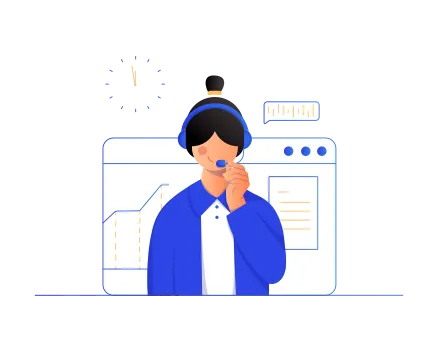
What After Pharm D: The Pharm D course, introduced by the Government of India and the Pharmacy Council of India in 2008, has brought significant changes to pharmaceutical education and career opportunities. A Doctor of Pharmacy (Pharm D) career in India offers a wide range of options and is becoming increasingly important in the healthcare field.
Pharm D graduates can work in various fields, including clinical pharmacy, the pharmaceutical industry, research, teaching, regulatory affairs, and healthcare management. As the healthcare sector continues to grow, the demand for skilled professionals increases, making it demanding career choice.
Students pursuing or completing a Pharm D should explore career options, job roles, salary expectations, and opportunities to make informed decisions about their future in the pharmaceutical field.

About Pharm D Course
The Pharm D course was introduced by the Government of India and the Pharmacy Council of India in 2008, with the goal of improving clinical pharmacy services in the country. It is the only pharmacy program directly involved with patient healthcare. The Pharm D program is a professional doctorate as a pre-Ph.D. qualification. After completing the Pharm D degree, graduates are entitled to use "Dr." before their name.
Pharm D course lasts for 6 years, divided into two phases: Phase I consists of 5 years of study, followed by Phase II, which is a 1-year internship or residency. The exams are conducted annually. To be eligible for admission, students must have completed 10+2 in Science (Medical/Non-Medical) or have a D.Pharmacy. The Pharm D course plays a central role in the healthcare system, focusing on the management of medication therapy and improving patient outcomes.
Pharm D Course Overview
The Pharm D course is a comprehensive program that aims to develop skilled clinical pharmacists. The table below provides an overview of the Pharm D course and will help you understand the main aspects of the course and what it offers:
|
Pharm D Course Overview |
|
|
Category |
Details |
|
Course Name |
Doctor of Pharmacy (Pharm D) |
|
Introduced by |
Government of India and Pharmacy Council of India, New Delhi |
|
Year Introduced |
2008 |
|
Course Duration |
6 years (including 1 year of internship/residency) |
|
Eligibility |
10+2 (Science) with Physics, Chemistry, and Biology/Mathematics or D.Pharm |
|
Objectives |
To develop clinical pharmacists skilled in patient care, medication therapy management, and healthcare improvement |
|
Curriculum |
Includes theoretical, practical, and clinical training in subjects like Pharmacology, Medicinal Chemistry, and Pharmacy Practice |
|
Internship/Residency |
1-year mandatory internship/residency in a hospital setting |
|
Career Opportunities |
Clinical Pharmacy, Pharmaceutical Industry, Academia, Regulatory Affairs, Healthcare Management, Research & Development |
|
Higher Education |
Opportunities for specialization such as M.Pharm, Ph.D., or MBA in Healthcare Management |
|
Average Salary |
Varies by role and experience, typically ranging from INR 3,00,000 to INR 12,00,000 per year |
|
Key Skills Developed |
Clinical skills, patient care, pharmaceutical research, healthcare management, regulatory compliance |
What After Pharm D? Jobs Opportunities, Salary & Course List
After completing a Pharm D degree, graduates have many career options to explore based on their personal interests and professional goals. They can find high-paying job roles in government and private sectors, such as Clinical Pharmacists, Drug Inspectors, and Medical Writers.
Graduates can also choose to pursue specialized courses in fields like clinical research or pharmaceutical management to boost their career growth. Below is a list of various job options and further education opportunities after completing Pharm D
Government and Private Sector Job Opportunities After Pharm D Course
After completing a Pharm D degree, graduates have various career options in government and private sectors. Each sector offers different roles with varying responsibilities and salary ranges. The table below outlines job opportunities in both sectors:
Government Sector Career Options After Pharm D
In the government sector, Pharm D graduates can find roles that involve ensuring the safety of drugs, conducting research, or working in educational and healthcare settings. These jobs offer competitive salaries and opportunities for career growth.
|
Job Opportunities in Government Sector After Pharma.D. |
||
|
Job Role |
Scope and Description |
Salary Range (Varies by role and experience) |
|
Drug Inspector |
Ensures the quality, safety, and efficacy of drugs and cosmetics. |
INR 9.3 lakh to INR 34.8 lakh per annum |
|
Research Officer |
Conducts research in drug discovery and development. |
INR 4.8 lakh to INR 18 lakh per annum |
|
Lecturer/Assistant Professor |
Teaches and conducts research in pharmacy colleges/universities. |
INR 3 lakh to INR 12 lakh per annum |
|
Hospital Pharmacist |
Manages and dispenses medications in hospitals. |
INR 3 lakh to INR 10 lakh per annum |
Private Sector Career Options After Pharm D
The private sector offers diverse job roles for Pharm D graduates, from clinical and retail pharmacy work to research and sales. These roles are often associated with good salaries and the chance to work in dynamic environments.
|
Job Opportunities in Private Sector After Pharma.D. |
||
|
Job Role |
Scope and Description |
Salary Range (Varies by role and experience) |
|
Clinical Pharmacist |
Assists patients with medication management and advises on drug interactions. |
INR 2.5 lakh to INR 5 lakh per annum |
|
Pharmacy Director |
Manages pharmacy operations and oversees staff. |
INR 62,279 per month |
|
Medical Sales Representative |
Promotes and sells pharmaceutical products to healthcare professionals. |
INR 2.5 lakh to INR 5 lakh per annum |
|
Medical Writer |
Writes research papers, articles, and reports for pharmaceutical companies. |
INR 4.87 lakh per annum |
|
Retail Pharmacist |
Dispenses medications and advises customers in retail pharmacies. |
INR 2.5 lakh to INR 5 lakh per annum |
|
Analytical Chemist |
Tests and analyzes pharmaceutical products to ensure quality control. |
INR 3 lakh to INR 10 lakh per annum |
|
Research Associate |
Assists in pharmaceutical research projects and analyzes data. |
INR 4 lakh to INR 15 lakh per annum |
|
Pharmaceutical Sales Manager |
Leads a sales team, sets targets, and develops strategies. |
INR 5 lakh to INR 20 lakh per annum |
|
Pharmaceutical Regulatory Affairs Specialist |
Ensures compliance with regulatory requirements and prepares submissions. |
INR 4 lakh to INR 15 lakh per annum |
|
Pharmaceutical Quality Control Analyst |
Tests and analyzes pharmaceutical products to meet quality standards. |
INR 3 lakh to INR 10 lakh per annum |
Further Education and Specializations After Pharm.D
After completing a Pharm D, graduates have several options to further their education and specialize in specific areas of pharmacy. Some popular options include:
-
Residency: A post-doctoral training program offering advanced skills in areas like clinical pharmacy, ambulatory care, or oncology.
-
Fellowship: A specialized program focused on research, allowing pharmacists to gain deeper knowledge in specific areas of pharmaceutical science.
-
Master’s Degree: Pursuing a master's in fields like public health, healthcare management, or business administration can help pharmacists move into leadership or management roles.
-
Specialty Certification: Pharmacists can gain certification in specialized areas like cardiology, oncology, or infectious diseases to enhance their expertise and career prospects.
Global Opportunities and Scope of Pharm D Course
Pharm D graduates have many job opportunities abroad in different pharmacy roles, each offering various responsibilities and specializations. These roles provide good career growth, with salaries depending on the country, job, and experience.
For example, pharmacists in the USA can earn between $40,000 and $150,000 per year. These jobs offer a chance to grow professionally and earn a competitive salary. Below are some of the key job opportunities in abroad:
-
Hospital/Clinical Pharmacist
-
Community Pharmacist
-
Pharmacy Assistant
-
Pharmacy Technician
-
Patient Counsellor
-
Analytical Chemist
-
Drug Store Management
-
Clinical Research
-
Pharmacovigilance
-
Drug Information Pharmacist
-
Ambulatory Pharmacist
-
Paediatric Care Pharmacist
-
E-Prescription Pharmacist
-
E-Pharmacy Pharmacist
-
Medical Coding
-
Special Care Pharmacist
What After Pharm D FAQs
What is the next step after Pharm D?
Which degree is best after Pharm D?
What is the best career option after D-Pharma?
Is Pharm D equal to MBBS?
What is the highest paying Pharm D job?

Get Free Counselling Today
Connect with our team of experts to get all your doubts resolved!









